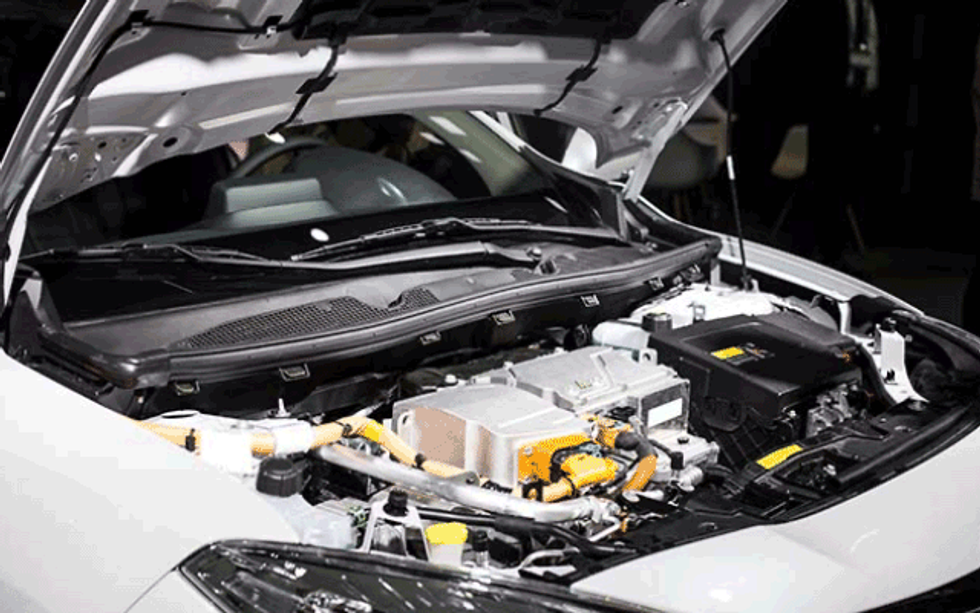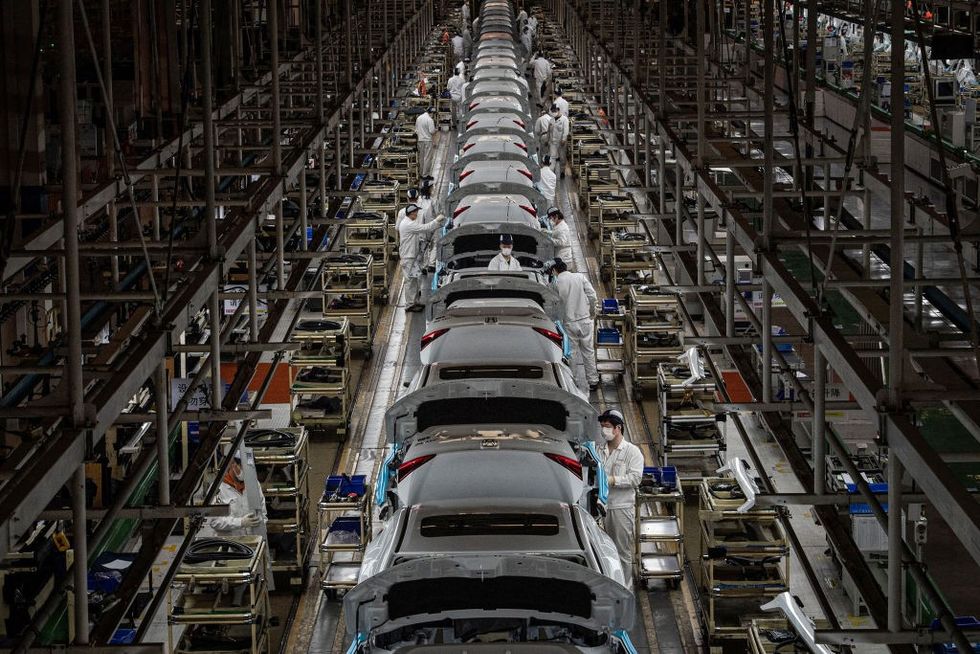12-volt batteries in electric cars have been prone to system failures
GETTY
Some drivers have been left waiting weeks for battery problems to be fixed
Don't Miss
Most Read
Trending on GB News
Experts have urged manufacturers to improve the lifespan of electric vehicle batteries with drivers continuing to experience issues.
The performance of the 12-volt battery technology inside vehicles often drops when the EV has not been used for a certain period of time.
In some cases, the battery causes the vehicle to experience issues and it can be "impossible" to start or even recharge once it has been damaged.
Now the Association of Fleet Professionals (AFP) is warning that battery issues continue to affect the adoption of electric vehicles.
Do you have a story you'd like to share? Get in touch by emailingmotoring@gbnews.uk

Businesses continue to make up the bulk of new electric vehicle registration
AAPaul Hollick, chair of the AFP, said that despite the UK adopting lofty Zero Emission Vehicle mandate rules, “many fleets were still being left in a position where their vans become unusable and had to be trailered to a dealership to be restarted”.
He explained that the “fundamental problem” is when an electric van is left unused for a couple of weeks, the 12-volt battery charge falls.
Once it loses charge, it becomes “impossible to start or recharge the vehicle”, Hollick stated.
In these cases, drivers have no choice but to return the vehicle to the franchise dealer and even then, “it can often take weeks to resolve the problem”.
Hollick said: “We’re even hearing from members who are having electric vans delivered in this state and having to reject them immediately, which is completely unacceptable. It’s unavoidably having an impact on the appetite of some fleets to electrify their vans.
“The handful of manufacturers involved – and this affects several models – have been quite different in their responses with some being faster to work towards a solution than others.
“Our members generally accept that in adopting electric vans, they are close to the cutting edge of using new technology and some teething issues will occur.”
However, he noted that there is a general feeling that the 12-volt battery technology being used lags some distance behind the advances that have been made in electric vehicle batteries in recent years.
To combat this problem, Hollick said that some manufacturers are expecting newsoftwareto arrive in a matter of weeks or months.
Hollick continued, saying that the “bricking problem” is still likely to occur, it will just take longer to happen.
One AFP member has resorted to looking at spending £1million on solar panels, which provides some idea of the scope of the problem, he added.
He said that manufacturers need to “step up” and help fix the problem or it won’t be completely resolved until the next generation of electric vehicles comes onto the market.
LATEST DEVELOPMENTS:
- Drivers warned as car insurance prices could rise even further amid spike in bogus claims
- 'Electric vehicles are not responsible for potholes!' - Experts slam claims that heavy EVs are damaging roads
- Ulez scrappage scheme failing to support electric vehicles with just two per cent of vans replaced by EVs
 12-volt battery short circuits after weeks of not being used GETTY
12-volt battery short circuits after weeks of not being used GETTYAccording to Clarios, drivers rely on the 12-volt battery to safely initialise the high-voltage battery, and to power vehicle applications when the high-voltage system is “disengaged”.
In turn, the high-voltage battery recharges the 12-volt battery and supports loads during the drive cycle in electric cars.








